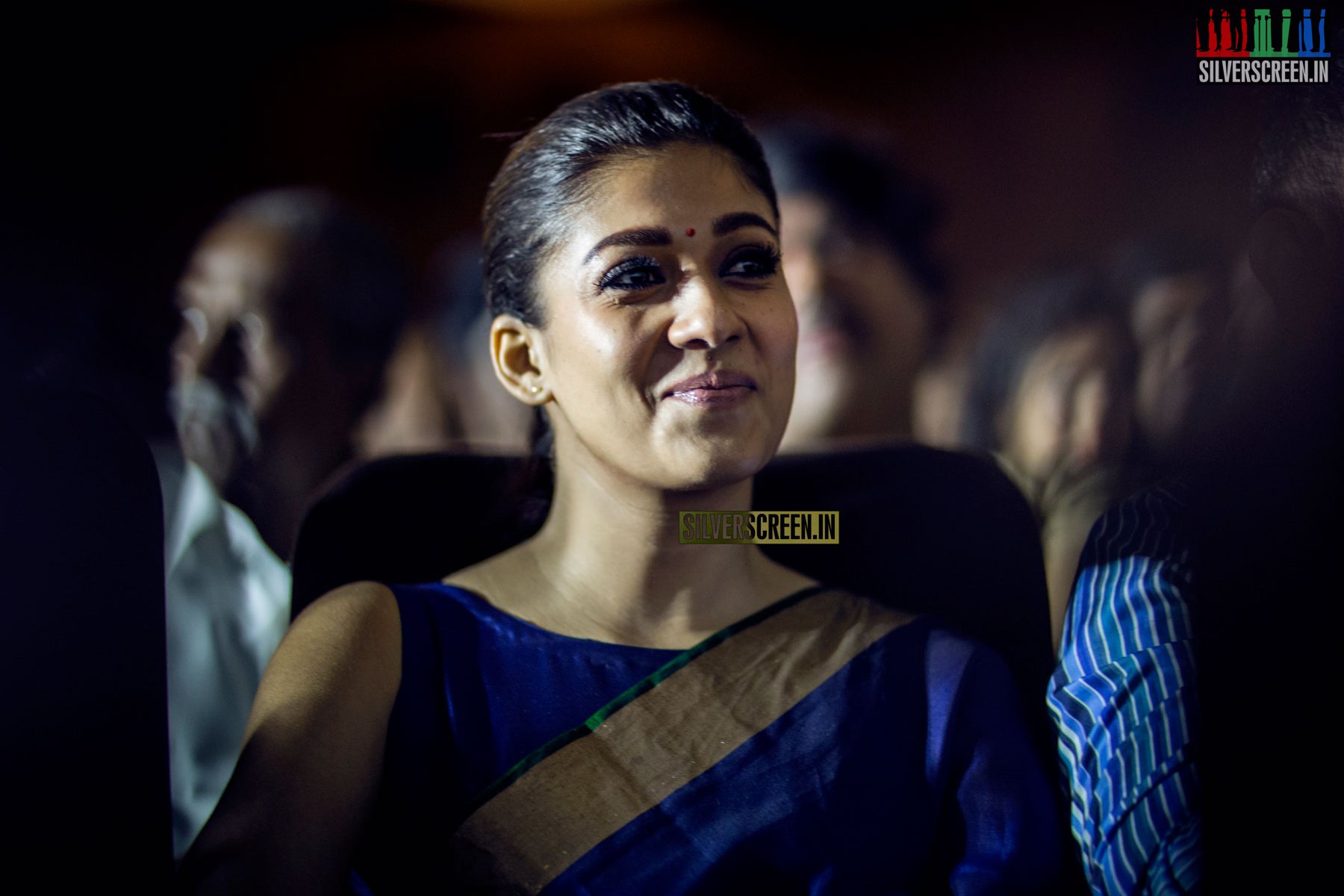Ajith Kumar’s Vivegam may have entered the coveted Rs 100-crore club, but the film has sparked off a raging debate over the accountability of film critics. It all started when Tamil Talkies posted their video review of Vivegam. Film critic Elamaran alias Maran (popularly known as Blue Sattai) received a lot of flak for not giving a favourable review from not just Ajith fans but also from the film fraternity. However, this is not the first time that the film community has directed such hostility towards critics.
The reactions, past and present included, from the Tamil Film Producers’ Council (TFPC) indicate that the film fraternity is not especially thrilled about online reviews. Some would even say that they are considered a threat, a menace of some sort. A few months ago, reports trickled in that the producers’ council was planning to make sure that film reviews would get published on the Sunday following the release. The perception behind this is: This would allow the audience to watch the film, free of any third party influence.
Keyaar, who was the president of the TFPC in 2014, was reportedly considering this seriously, when he lost to Kalaipuli S Thanu. At an event for Saivam, Keyaar confessed that there were talks to make sure that the number of websites allowed to cover film-based events are restricted. This had caused a huge ruckus
Under Thanu’s regime, a couple of exploratory meetings with the PR union were held. But nothing came of it.
Eventually, the newer crop of producers banded together to form Namma Ani. This faction went on to win against Thanu. Vishal was elected as the president, making him one of the most powerful people in the Tamil film industry.
Far from bringing in fresh perspective, Vishal has proved to be even more conservative than his predecessors. Since assuming control of the TFPC, Vishal has on several occasions asked for accountability with regards to film reviews. The actor is of the opinion that reviews, especially online reviews, hurt the box office performance of a film. There is no data to support his view, but he has stood by it.
In an interview with Puthiya Thalaimurai, the actor even said that the council will decide on a course of action to make sure that certain things regarding the media are “regulated”.
This brings us back to Elamaran’s case. After he posted the negative review, sources close to the journalist told us that he was threatened by Ajith’s fans and also, by some prominent personalities from the industry. He declined to speak to Silverscreen, and would only say that he is sincerely apologetic about his actions.
The home address and personal contact details of Elamaran were posted online; while a fan of Ajith created a WhatsApp group with other fans with Elamaran in it to specifically harass him.
Elamaran, however, made an important comment. He said when it comes to online trolling, “gender matters”. Perhaps, he was referring to the case of Dhanya Rajendran, a journalist who was attacked by fans of Vijay for her opinion on Sura. The situation quickly snowballed where she was threatened and brutally abused online. Later, several personalities came in support of Rajendran and demanded that the actor should be held accountable.
In fact, in Elamaran’s case, directors, actors joined in on the attack. But Ajith remained blemish free.
Vijay copped a lot of criticism when his fans abused a journalist online. In the same situation now, Ajith is handled with kid gloves 🙂
— செந்தில் / Chenthil (@chenthil_nathan) August 29, 2017
Director Ravi Arasu of Eetti fame, through a video, seemed to suggest that Elamaran was a failed artiste who was jealous at the opportunity provided to other directors, which is why Elamaran was critical of reviews. Arasu said, “Get a job as a director or as an assistant director, and see firsthand the pain of filmmakers. Then, you can write a review,” he added.
This was a cue for many celebrities to join the chorus of demanding some of sort of regulation of movie reviews.
VK Govinda Rao, noted actor and critic, says that such talk could very well cause the downfall of media covering cinema. “There should never ever be any talk of media regulation. There is a reason why Indira Gandhi was hugely unpopular, and that was the Emergency. There was excessive curtailing of the press, and everything was under lockdown. The reason then was political. But now, to talk about regulating film media, and that too, because they affect the performance of a film is silly and also frightening.”
Suhasini Mani Ratnam, at the time of Ok Kanmani’s release, said that only qualified people should review films. She was criticised on social media, with several calling her out-of-touch with the current world.
In the age of social media, anybody with an internet connection can post his/her opinions online. This seems to irk Vishal and his kind, who say that not everybody with a green screen can call themselves an online reviewer. A large number of reviewers in online and print media these days are not trained in film studies. They are former engineers, college students, school students even – united by a love for cinema and a passion to work in the film field.
But actors like Vishal and Ponvannan seem to think they are not qualified enough.
“Why not?,” asks actor Delhi Ganesh. “When anyone with a Handycam is a short film director these days, then why can’t any person, with the god given right to say what he/she wants, be a reviewer? It is just plain logic. Anyone and everyone can and should have an opinion about things. What right does another person or entity have that they think they can control this?”
Granted, there are a few who are deliberately offensive in their reviews so as to garner attention. “Even in that case, there are no laws supporting or allowing another entity from stopping that person from doing what it is they want to do,” Ganesh adds.
Thanu, producer of films like Kabali, Theri, said that earlier, reviewers and writers were respectful of cinema. “They had a real passion and love for the medium. As such, whatever it is they wrote would reflect that. Now, that is no longer the case.”
Reviewers write whatever they want, however they want to. “There’s no controlling them,” Thanu says.
The fact that they cannot control the way their films are perceived by the media, is a big problem for producers like Thanu. “We invest crores in the business. Just by bad word of mouth, the film’s performance takes a hit.”
There is a palpable distrust among filmmakers and producers of reviewers and journalists. A part of this seems to come from the ‘cover’ system. At small and large events, journalists from established papers and websites are given a token sum by the film’s public relations officers as an incentive for covering the event. This does two things – it is a way of making sure that all those invited by the PR’s attend the event and also, of ensuring that some form of the event makes its way to the headlines.
What it also does is drive a wedge into the relationship between the filmmakers and journalists. A few seem to think that this incentive should guarantee a good review for their film. When it doesn’t, they talk about regulation.
Recommended
The budget for these incentives comes from the producers, and hence, they are complicit in this process. A producer, who wished to remain anonymous, said that he was forced to set aside such a budget, because the alternative was scarier. “The perception was that if the press was not satisfied, then they’d write bad reviews.”
It is this yawning chasm of misunderstandings and perceptions that the producers and journalists themselves need to cross, so as to make way for a better, free-er press. Producers need to understand that the same way they exert their right to stalk women, pass lewd comments, carry vulgar scenes and pass it off as fantasy, others also have a right to express their opinion.
Till they do, reviewers like Elamaran, whose methods may or may not be objectionable, will continue to be vilified.



